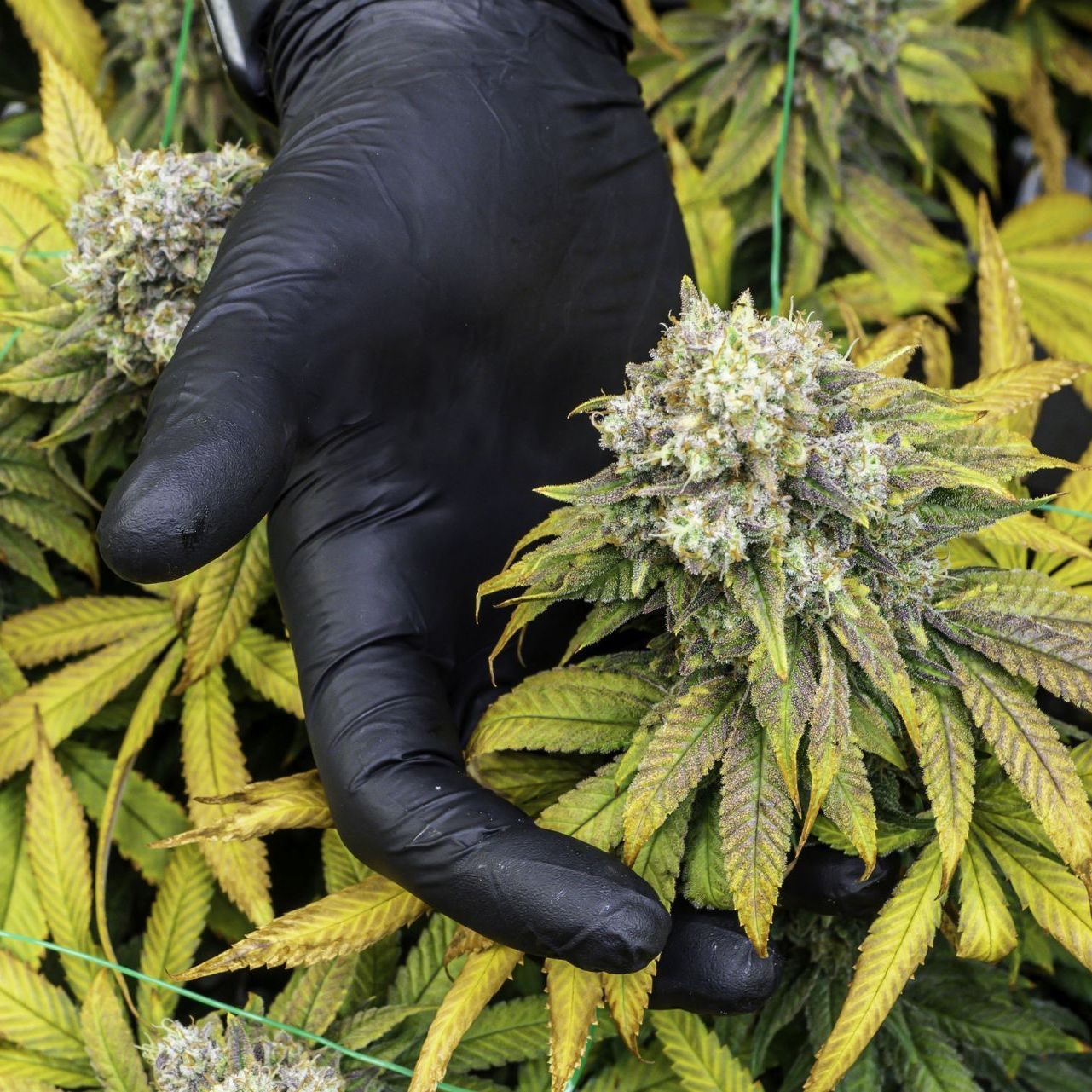Opening a medical cannabis dispensary in West Virginia means navigating a unique set of risks and regulatory requirements. With over 34,000 approved patient applications as of August 2024, the state’s medical cannabis industry is steadily expanding, creating new opportunities and challenges for dispensary owners. Understanding the right insurance coverage and its associated costs is essential to protect your business, comply with state laws, and maintain smooth operations.
Whether you are running one of the nine dispensaries currently operating in West Virginia or planning to enter this growing market, this guide breaks down the types of insurance coverage you need, what influences costs, and how the local industry landscape impacts your risk profile. For context on the state’s medical cannabis landscape, see the latest report from The Dominion Post.
Understanding the Insurance Needs of West Virginia Dispensaries
Dispensaries face a variety of risks, from product liability to property damage and employee injuries. Insurance coverage tailored to these risks is not optional—it is a critical business safeguard. West Virginia’s medical cannabis market is still maturing, but the regulatory environment demands strict compliance, especially regarding licensing and product safety.
At a minimum, dispensaries should consider the following types of insurance:
- General Liability Insurance: Protects against claims of bodily injury or property damage occurring on your premises.
- Product Liability Insurance: Covers claims related to the cannabis products you sell, including adverse reactions or contamination issues.
- Property Insurance: Safeguards your physical assets, including your dispensary location, inventory, and equipment, against fire, theft, or natural disasters.
- Workers’ Compensation Insurance: Required for businesses with employees, this covers medical costs and lost wages if an employee is injured on the job.
- Commercial Auto Insurance: If your business involves transportation of cannabis products, this protects vehicles and drivers.
- Cyber Liability Insurance: With sensitive patient data involved, protecting against data breaches and cyberattacks is increasingly important.
Each coverage type addresses a specific risk that dispensaries face. For example, product liability is critical given the medical nature of cannabis and the potential for adverse patient reactions. Meanwhile, workers’ compensation is a legal requirement in West Virginia, ensuring employees receive care if injured during work. Additionally, dispensaries must also consider the impact of their operational decisions on their insurance needs. For instance, implementing robust safety protocols and employee training can not only mitigate risks but may also lead to lower insurance premiums over time.
Why Insurance Costs Can Be Higher for Dispensaries
Insurance premiums for dispensaries tend to be higher than for many other retail businesses. This is due to a few factors:
- Regulatory Complexity: Cannabis businesses operate under strict state and federal regulations, increasing compliance risks.
- Product Risks: Cannabis products carry unique liability risks, especially medical cannabis used by patients with chronic conditions.
- Cash-Intensive Operations: Due to limited banking access, dispensaries often handle large amounts of cash, raising theft and security risks.
- Limited Insurance Providers: Not all insurers offer cannabis coverage, reducing competition and driving prices up.\
These factors combine to make insurance a significant operational cost. However, the right coverage can prevent devastating financial losses and legal troubles. Furthermore, dispensaries should be proactive in engaging with insurance professionals who specialize in cannabis to ensure they are not only compliant but also adequately protected. This proactive approach can help dispensaries navigate the complexities of the insurance landscape while also identifying potential gaps in coverage that could expose them to unforeseen liabilities.

Article By: Deb Sculli
Cannabis Insurance Specialist
TruePath Insurance is fully licensed and authorized to provide comprehensive insurance solutions across multiple states.
We proudly serve individuals and businesses nationwide, offering access to trusted regional and national carriers. Our goal is to help clients find reliable, affordable coverage that aligns with their goals—whether for personal protection, business stability, or long-term financial security.
How West Virginia’s Medical Cannabis Industry Landscape Affects Insurance
The state’s medical cannabis industry is still in its growth phase but shows strong signs of expansion and job creation. As of 2022, there were nine dispensaries, six growers, and two processors operating across West Virginia, with plans for further expansion. This growth means more businesses entering the market, which can gradually improve insurance options and pricing as the industry matures. The introduction of new players can also foster competition among insurance providers, potentially leading to more tailored policies that meet the unique needs of cannabis businesses.
Job creation is another important factor. According to Jason Frame, Director of the West Virginia Department of Health and Human Resources’ Office of Medical Cannabis, the industry has created 332 direct jobs and nearly 1,900 additional positions in related fields such as commercial construction, security, and transportation. This ripple effect increases the demand for workers’ compensation and liability coverage across the supply chain. Moreover, as more individuals enter the workforce, there is an opportunity for educational programs and training initiatives to emerge, further enhancing the skill set of employees in the cannabis sector. This could lead to a more knowledgeable workforce that prioritizes safety and compliance, ultimately benefiting the insurance landscape.
Still, challenges remain. West Virginia’s health insurance prices are notably high, with typical family plans costing over $2,000 per month. This impacts dispensary owners who must provide employee benefits and influences overall labor costs. Sam Petsonk, a lawyer focused on medical benefits and fair wages, highlights the need for innovation in healthcare to keep businesses competitive in the state. The high cost of health insurance can deter potential employees from entering the cannabis industry, making it crucial for dispensaries to find creative solutions, such as partnering with local health providers or exploring alternative insurance models that can alleviate some of the financial burden.
For dispensaries, this means factoring in not only insurance for the business itself but also considering the cost of employee health benefits as part of total operational expenses. Learn more about the industry’s job impact from the West Virginia Department of Health and Human Resources report. As the industry continues to evolve, dispensaries may also need to adapt their business models to include wellness programs or incentives that promote employee health, which could, in turn, lead to lower insurance premiums and a more engaged workforce.
Regulatory Compliance and Its Impact on Insurance
West Virginia enforces strict licensing and operational rules for medical cannabis businesses. In 2024, the state imposed $1.7 million in civil penalties on pharmacy benefit managers for violating licensing requirements. While this example is not directly about dispensaries, it underscores the state’s commitment to regulatory enforcement. The rigorous compliance landscape means that dispensaries must invest not only in operational practices but also in legal counsel to navigate the complexities of state regulations effectively.
Dispensaries must maintain compliance with state laws on product handling, security, and patient privacy. Failure to comply can lead to fines, license suspension, or loss of coverage. Insurance providers often require proof of compliance before issuing or renewing policies, and non-compliance can increase premiums or cause coverage denial. This creates a challenging environment for dispensaries, as they must balance the costs of compliance with the need for comprehensive insurance coverage. Furthermore, as regulations evolve, staying informed about changes in the law becomes essential, necessitating ongoing training and education for staff to ensure adherence to the latest standards. This dynamic landscape not only influences operational strategies but also shapes the overall risk assessment that insurance companies conduct when underwriting policies for cannabis businesses.

Typical Insurance Costs for West Virginia Dispensaries
Insurance costs vary widely based on factors such as location, size, sales volume, and risk management practices. However, dispensaries can expect certain baseline costs for essential coverages. Understanding these costs is crucial for new dispensary owners as they navigate the complexities of the cannabis industry, which is often subject to unique regulatory and operational challenges.
| Coverage Type | Estimated Annual Cost | Notes |
|---|---|---|
| General Liability | $3,000 - $7,000 | Depends on location and sales volume |
| Product Liability | $5,000 - $15,000 | Higher for medical cannabis due to patient risk |
| Property Insurance | $2,000 - $6,000 | Varies by property value and security measures |
| Workers’ Compensation | $4,000 - $10,000 | Based on payroll and job risk |
| Commercial Auto | $1,500 - $4,000 | For businesses with delivery or transport vehicles |
| Cyber Liability | $1,000 - $3,000 | Important for protecting patient data |
These estimates provide a starting point but actual premiums can be higher or lower depending on your dispensary’s specifics. Insurance providers will assess your risk profile, including security protocols, employee training, and compliance history. Additionally, factors such as the dispensary's claims history and the overall stability of the cannabis market in West Virginia can also influence premium rates. As the industry continues to evolve, staying informed about market trends and regulatory changes can help dispensary owners anticipate shifts in insurance costs.
Ways to Manage and Reduce Insurance Costs
Dispensary owners can take steps to lower premiums without sacrificing coverage quality. Some effective strategies include:
- Implementing robust security systems to reduce theft risk
- Training employees thoroughly on compliance and safety procedures
- Maintaining accurate records and transparent operations
- Bundling multiple coverages with one insurer for discounts
- Working with brokers familiar with the cannabis industry to find competitive rates
Investing in risk management not only protects your business but also signals to insurers that you are a lower risk, which can translate into better pricing. Furthermore, engaging in community outreach and building a positive reputation can enhance your dispensary's standing, potentially leading to more favorable insurance terms. Regularly reviewing and updating your insurance policies in response to changes in your operations or the regulatory landscape is also crucial, ensuring that you remain adequately covered as your business grows and evolves.
Insurance Considerations for Dispensary Employees
Employees are the backbone of any dispensary, and protecting them is both a legal obligation and a business priority. Workers’ compensation insurance is mandatory in West Virginia and covers medical expenses and lost wages for employees injured on the job.
Given the physical nature of dispensary work—handling inventory, operating machinery, and managing security—injuries can happen. Having proper coverage ensures your employees receive care promptly and your business avoids costly lawsuits. It is also crucial to maintain a safe working environment by implementing training programs that educate employees about safety protocols and proper handling techniques. Regular safety audits can further mitigate risks, fostering a culture of safety that benefits both employees and the business.
Additionally, offering health insurance benefits can help attract and retain skilled workers. However, West Virginia’s high health insurance costs pose challenges. Business owners should explore group plans or partnerships that might offer more affordable options. For insight on the state’s health insurance landscape, see the West Virginia Watch analysis. Beyond health insurance, dispensaries might also consider offering additional benefits such as dental and vision coverage, which can significantly enhance employee satisfaction and loyalty. Furthermore, wellness programs that promote physical and mental health can create a more engaged workforce, reducing absenteeism and improving overall productivity.
Moreover, as the cannabis industry continues to evolve, dispensaries should stay informed about changes in legislation that may impact employee benefits and insurance requirements. Engaging with local industry associations can provide valuable resources and networking opportunities, enabling business owners to share best practices and stay ahead of potential challenges. This proactive approach not only safeguards employees but also positions the dispensary as a responsible and attractive employer in a competitive market.

Key Takeaways for West Virginia Dispensary Owners
Running a medical cannabis dispensary in West Virginia requires careful planning around insurance coverage. The industry’s growth-reflected in thousands of patient approvals and hundreds of jobs created-signals opportunity but also demands vigilance against risks. As the market expands, dispensary owners must navigate a complex landscape of regulations and consumer expectations, making it essential to stay ahead of industry trends.
Prioritize comprehensive coverage that includes general liability, product liability, property, and workers’ compensation. Understand that costs may be higher than other retail businesses due to regulatory and product-specific risks. Invest in security and compliance to lower premiums and protect your license. Additionally, consider the importance of employee training programs that emphasize safety and compliance, as well-trained staff can significantly mitigate risks associated with product handling and customer interactions.
Stay informed about the evolving state regulations and market conditions. With the right insurance strategy, dispensaries can safeguard their operations, support their employees, and thrive in West Virginia’s medical cannabis market. Engaging with local cannabis associations and attending industry seminars can provide valuable insights and networking opportunities, allowing dispensary owners to share best practices and stay updated on legislative changes. Furthermore, fostering relationships with local law enforcement and community leaders can enhance your dispensary's reputation and ensure a collaborative approach to navigating the challenges of this burgeoning industry.
Frequently Asked Questions
Q: Is general liability insurance required for West Virginia dispensaries?
A: While not legally mandated, general liability insurance is highly recommended to protect against claims of injury or property damage on your premises.
Q: How does product liability insurance protect my dispensary?
A: It covers legal claims related to adverse effects or defects in the cannabis products you sell, which is crucial for medical cannabis businesses.
Q: Are workers’ compensation insurance premiums expensive in West Virginia?
A: Premiums vary based on payroll and job risk but can be a significant cost. Given the physical work involved, coverage is essential and required by law.
Q: Can I reduce my dispensary’s insurance costs?
A: Yes. Implementing strong security, training employees, maintaining compliance, and bundling policies can help lower premiums.
Q: Does West Virginia have many dispensaries currently operating?
A: As of 2022, there are nine dispensaries with plans for expansion, reflecting a growing market.
Q: How important is cyber liability insurance for dispensaries?
A: Very important. Protecting sensitive patient data from breaches is critical in medical cannabis operations.
About The Author: Deb Sculli
I’m Deb, a Cannabis Insurance Specialist focused on helping dispensaries, cultivators, and cannabis-related businesses find the right protection. With a strong understanding of the industry’s regulations and risks, I work hard to simplify the insurance process—so my clients stay compliant and confidently safeguard their operations and investments.
Contact Us
WHO WE HELP
Serving the Cannabis Supply Chain
We cover licensed operators at every stage.
OUR BLOGS
Resources for Cannabis Business Owners
Stay informed and protected with our latest posts.
COMMON QUESTIONS
Cannabis Insurance Made Clear
Answers to the questions we hear most from cannabis business owners.
What types of insurance do you offer for cannabis businesses?
We offer commercial property, general liability, product liability, crop insurance, workers’ compensation, and cyber liability tailored to cannabis operations. These policies address the most common risks, such as crop loss, product claims, and facility damage.
Our agents will help you match the right coverage to your business type and scale, whether you're a dispensary, grower, processor, or distributor.
Why is specialized cannabis insurance necessary?
Standard business policies often exclude cannabis-related activities, which leaves significant exposure gaps. Cannabis-specific insurance covers unique industry risks like product recalls, crop theft, and regulatory compliance.
Having the right policy also satisfies licensing, leasing, and vendor requirements, allowing your business to operate legally and securely.
How does your agency ensure compliance with state regulations?
Many states require proof of specific insurance types before issuing or renewing cannabis licenses. We stay up-to-date on regulatory changes and ensure your policies meet state and local mandates.
That means you avoid surprises during audits or inspections and maintain good standing with licensing authorities.
How fast can I get a quote and bind coverage?
Request a quote and you’ll typically receive a custom proposal within 24 hours. Once you review and accept it, coverage can often be bound the same day, so your business isn’t left exposed.
We streamline documentation and communication to make setup fast and clear—no confusing forms or delays.
Do you support multi-state cannabis businesses?
Yes. We are licensed to operate in 36 states, including major cannabis markets. Whether you’re operating in one state or across several, we can design policies that address your regulatory and risk needs.
As you expand, our team adjusts your coverage accordingly—keeping your protection consistent across state lines.
What should I consider when selecting cannabis insurance?
Begin by identifying your key exposures—crop value, product inventory, employee safety, or cyber data. From there, choose coverage that aligns with these risks instead of opting for a basic or low-cost solution.
Also, look for a provider with cannabis expertise and responsive claims support—this experience helps during actual loss events.
Contact Us
Phone
Address







